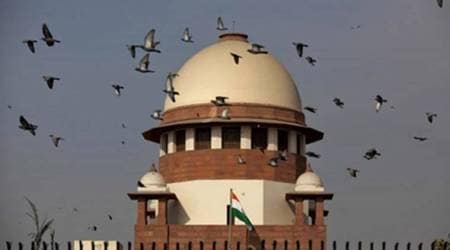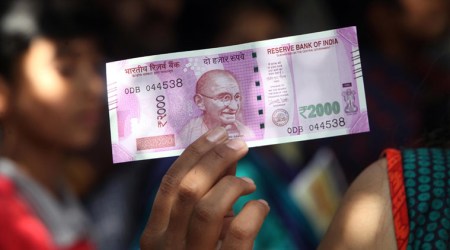 Challenge to Aadhaar act: After an hour-long hearing, the Supreme Court bench, which also included Justices J Chelameswar, S A Bobde, S Abdul Nazeer and D Y Chandrachud, referred the question to a nine-judge Constitution Bench.
Challenge to Aadhaar act: After an hour-long hearing, the Supreme Court bench, which also included Justices J Chelameswar, S A Bobde, S Abdul Nazeer and D Y Chandrachud, referred the question to a nine-judge Constitution Bench.
The Supreme Court decided Tuesday to set up a nine-judge bench to decide whether right to privacy can be declared a fundamental right under the Constitution. A five-judge Constitution Bench, headed by Chief Justice of India J S Khehar, which met to examine if the Aadhaar Act violates a person’s right to privacy, realised that the court will have to first answer if right to privacy constitutes a fundamental right under the Constitution before it takes up the main question.
After an hour-long hearing, the bench, which also included Justices J Chelameswar, S A Bobde, S Abdul Nazeer and D Y Chandrachud, referred the question to a nine-judge Constitution Bench. The larger bench will hear arguments on the point on Wednesday and its outcome will decide whether the five-judge bench will still have to adjudicate on the challenge to the Aadhaar Act.
The judges noted that two earlier judgements of the court — M P Sharma’s case in 1954 and Kharak Singh’s case in 1962 — had held that privacy was not a fundamental right. While the first was delivered by an eight-judge bench, the latter was decided by a six-judge bench.
“It is essential for us to determine whether there is a fundamental right to privacy in the Indian Constitution. Determination of the question would essentially entail whether the decisions in M P Sharma (case) by an eight-judge bench and Kharak Singh (case) by a six-judge bench that there is no such fundamental right is the correct expression of constitutional provisions,” the Bench recorded in its order.
“That needs to be settled. If not, we can’t go forward,” the CJI remarked.
Appearing for the Centre, Attorney General K K Venugopal said “our founding fathers have encompassed all rights. But consciously, this (right to privacy) is omitted”.
This was countered by Justice Chelameswar: “It is illogical to argue that our Constitution is devoid of right to privacy while common law identifies it. Textually it is correct today that there is no right to privacy in the Constitution. But even freedom of press is not expressly stated. This court has interpreted it.”
He also noted that some smaller benches of the court had in the past held that right to privacy was a fundamental right. Beside the challenge to the Aadhaar Act, the court is also seized of petitions questioning the government move to make the unique identity mandatory for availing benefits of social welfare schemes.
On June 9, a Division Bench of the Supreme Court had upheld the Centre’s decision making it compulsory for those filing Income Tax returns to furnish their Aadhaar numbers.

